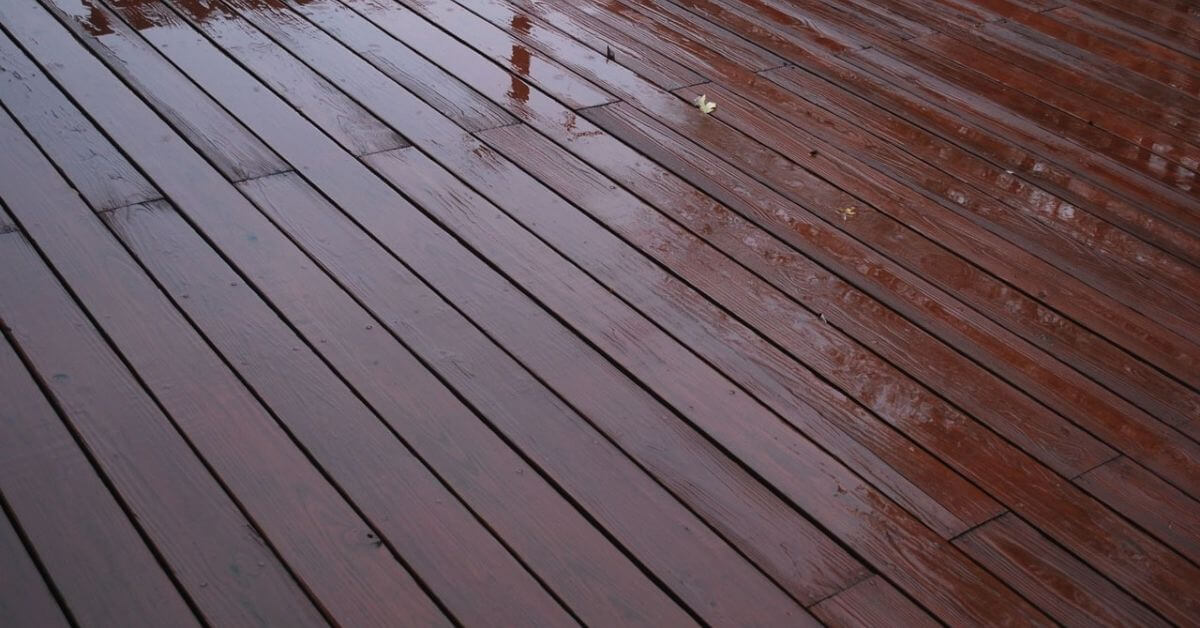Kebony wood
Kebony wood is a great option for any exterior and interior application, where durability, stability, and low maintenance are important. It is a natural and sustainable wood. Therefore, it does not cause any harm to humans and animals.
Kebony has great hardness (JankaHardness 1619 LBF). So this is a great choice for flooring, decking, and many exterior applications. The main advantage of Kebony, it is Non-toxic and environmentally friendly.
Kebony wood is passed through a process. This process enhances the softwood properties and gives premium hardwood features with great rich brown color.
Accoya wood
Accoya wood is the next generation of treated wood. It has more durability, stability, rot, and decay resistance compared to common wood. It has been used for the last few years but it is increasingly being used all over the world.
Accoya wood is not a wood species nor is it an artificial material. So Accoya wood exists, but Accoya trees do not. The wood is treated by a special process that changes the properties of the wood. This process is called “acetylation“.
Acetylation is a non-toxic process. In which pine wood is soaked in acetic anhydride. After its chemical reaction with hydroxide, it becomes acetylated wood.
Pine timber is used to make Accoya wood. There are many reasons for using pine for Accoya such as. The pine tree is a medium-fast growing pine tree that grows about 1-2 feet per year. There are more than 126 classified species of pine. It is highly available worldwide. Another reason is it has a medium texture, and uniform closed grain.
| # | Kebony Wood | Accoya Wood |
| Material | 100% Solid Wood | 100% Solid Accoya wood |
| Wood species | Monterey pine | Pine |
| Toxic | Non-toxic and environmentally friendly | Non-toxic and environmentally friendly |
| Janka Hardness | 1619 LBF | 1484 LBF (6600 N) |
| Wood Density | 670 kg / m3 | 510 – 600 kg / m³ |
| Warranty | 30 years on decking and cladding products with Terms and conditions | 50 years above ground and 25 years in the ground or freshwater with Terms and conditions |
| Best Uses for | Cladding, Decking, Construction, and Roof | Siding, Decking, Window, and Door |
Which is the Best For Your Decking?

Which wood is better for your decking?, It is a bit difficult to say directly. Kebony and Accoya both are great wood for decking. As we can see in the table data given above. Kebony Wood has Janka hardness (1619 LBF) and density (670 kg / m3), While Accoya Wood has Janka hardness (1484 LBF (6600 N)) and density (510 – 600 kg / m³). So we can say that Kebony Wood is more heavy and rigid.
Both of these come in several grades such as high, medium, and low grades, Which you can choose according to your application’s requirements. High-grade Kebony and Accoya wood are considered superior for decking and siding or all exterior applications and the use of low-grade wood is fine for interior applications. Because the interior application does not have to withstand the weather.
The company gives a good warranty period on Kebony and Accoya wood. Kebony gives a 30 years warranty on cladding and decking.
Here we saw Kebony vs Accoya. You might have got some idea which is better for your application, if you are still confused, So you should contact the nearest construction agency. These are some of the important links that manufacture Kebony and Accoya on a large scale.
Kebony vs Accoya Properties
If we talk about their properties, then there is not much difference among them. Given below are some properties found in these Kebony and Accoya wood. So, due to their special properties, it is being used very fast around the world.
- Highly Stable
- Barefoot Friendly
- Highly Durable
- NonToxic
- Low Co2, Emissions
- Excellent Machinability
- Sustainably Sourced
- Low Environmental Impact
- Insect Resistant
- 100% Recyclable

